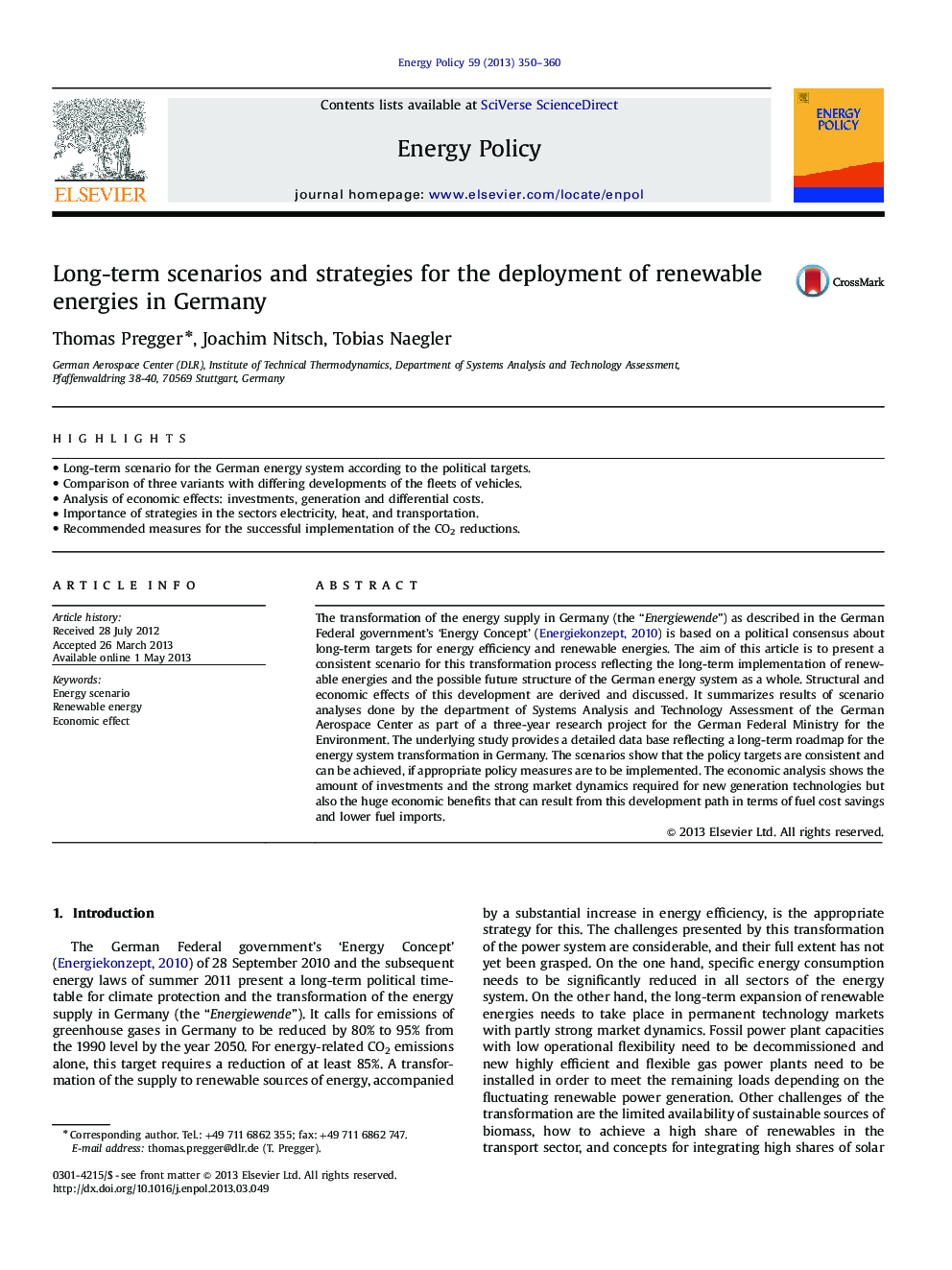| Article ID | Journal | Published Year | Pages | File Type |
|---|---|---|---|---|
| 7404371 | Energy Policy | 2013 | 11 Pages |
Abstract
The transformation of the energy supply in Germany (the “Energiewende”) as described in the German Federal government's 'Energy Concept' (Energiekonzept, 2010) is based on a political consensus about long-term targets for energy efficiency and renewable energies. The aim of this article is to present a consistent scenario for this transformation process reflecting the long-term implementation of renewable energies and the possible future structure of the German energy system as a whole. Structural and economic effects of this development are derived and discussed. It summarizes results of scenario analyses done by the department of Systems Analysis and Technology Assessment of the German Aerospace Center as part of a three-year research project for the German Federal Ministry for the Environment. The underlying study provides a detailed data base reflecting a long-term roadmap for the energy system transformation in Germany. The scenarios show that the policy targets are consistent and can be achieved, if appropriate policy measures are to be implemented. The economic analysis shows the amount of investments and the strong market dynamics required for new generation technologies but also the huge economic benefits that can result from this development path in terms of fuel cost savings and lower fuel imports.
Related Topics
Physical Sciences and Engineering
Energy
Energy Engineering and Power Technology
Authors
Thomas Pregger, Joachim Nitsch, Tobias Naegler,
